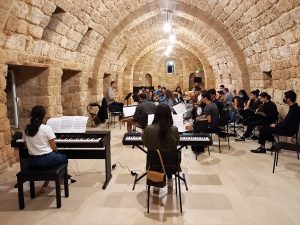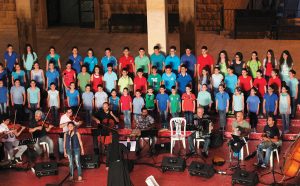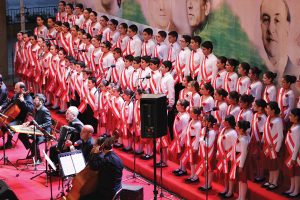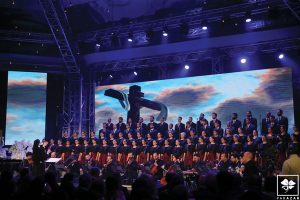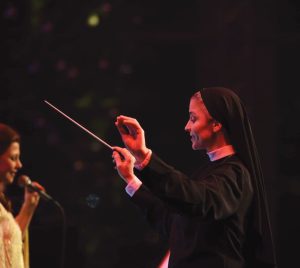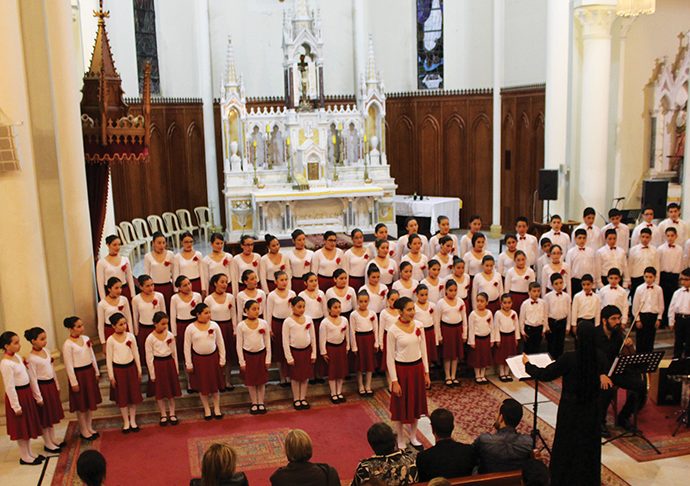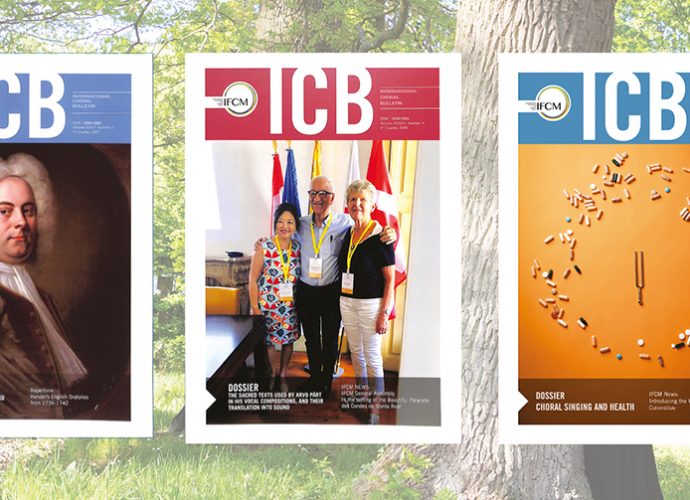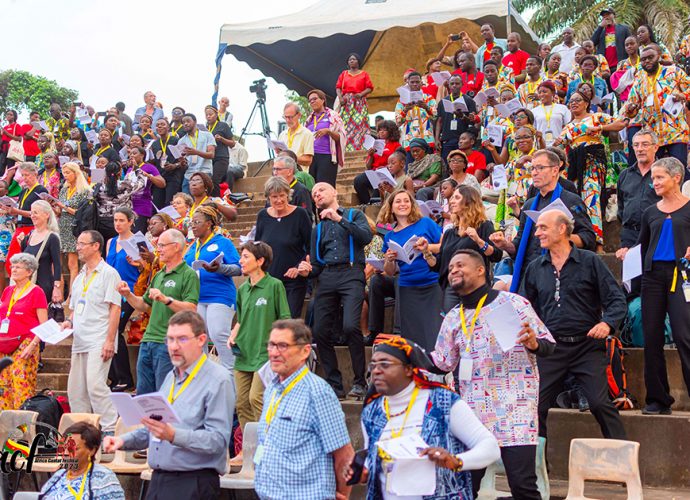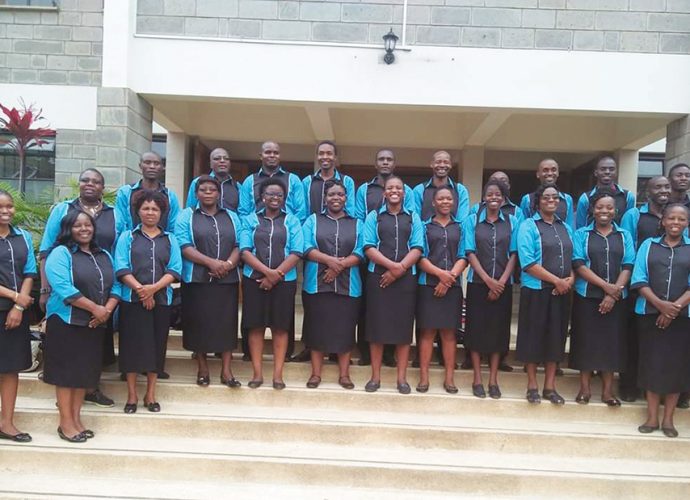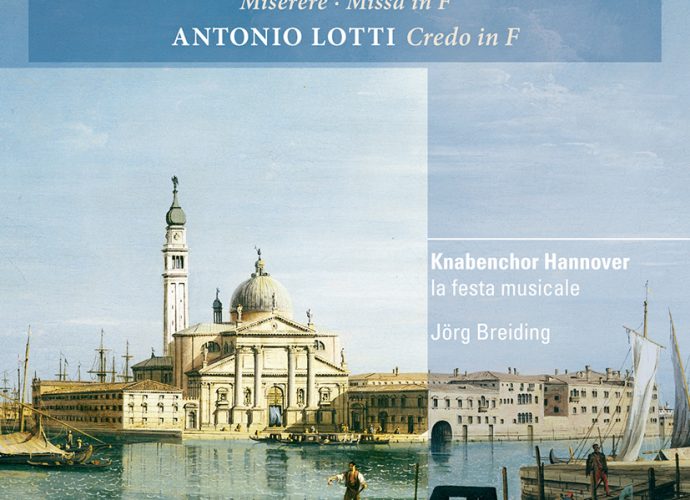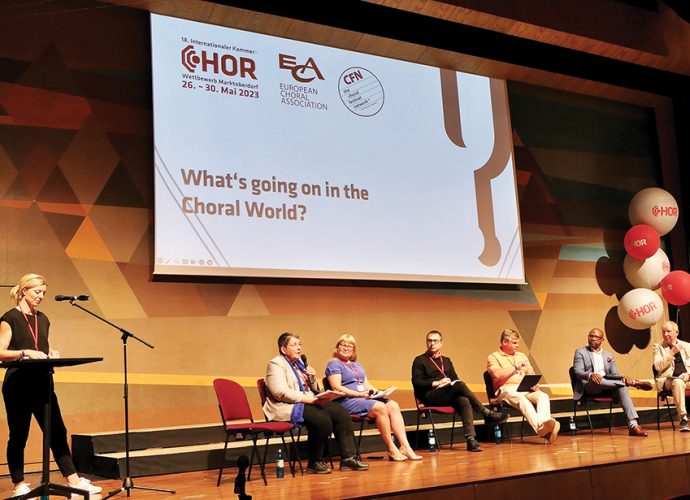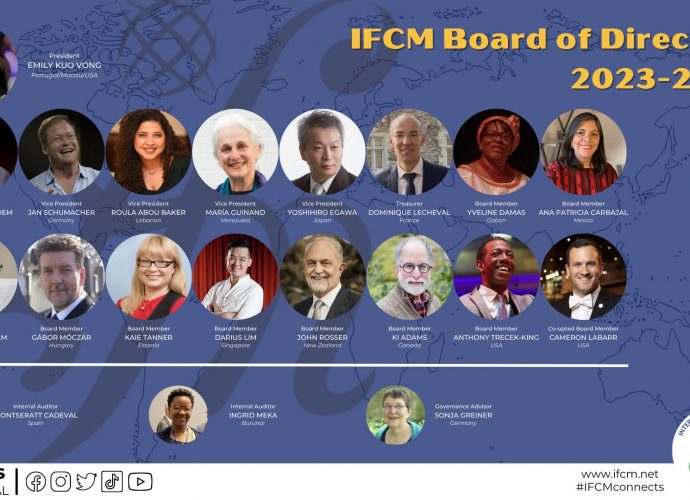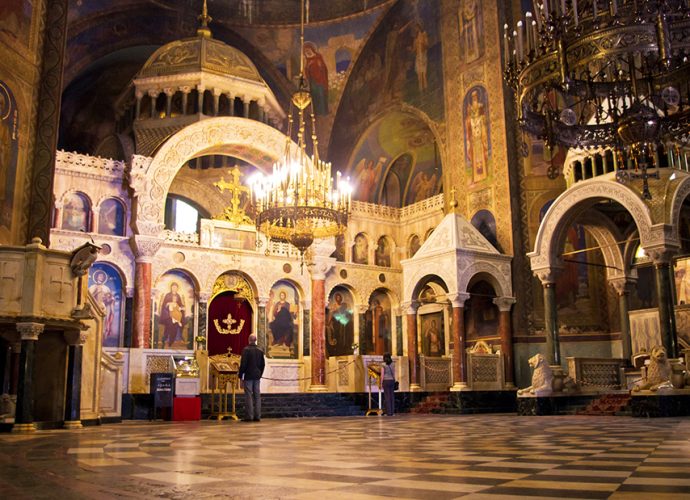Philokalia Institute and Choir “The art in mission” (Page 2)
S. MARANA SAAD, Founder and the President of Philokalia Institute and Organization, Lebanon
Ten years of being a conductor of a choir of more than 200 children and adults were a validation and a spiritual invitation to found Philokalia in 2019, as a new institution, art as a mission in the church, for society. The power of art in contributing to one’s life inspired me to found Philokalia. I witnessed art elevating souls, defining visions, and changing mindsets. Therefore, Philokalia’s founding value is a solemn validation of the spiritual role of art. Philokalia is the light generated by the intersection of art and life, of love and beauty.
My spiritual and theological backgrounds intertwined music throughout my 22 years in the Lebanese Maronite Order. Sacred Music was the first step that paved the way towards taking on the mission of art. Throughout my musical experience in the monastery, my scope of art became wider, encountering a diversity of people, cultures, and experiences. Therefore, I thought that Philokalia would be home for any artist willing to bring change and positivity to this world, to whomever was dreaming, searching for meaning in art, in love and in life. Philokalia brought the power of art both in and out the church together, towards a new evangelization. Art is in the middle, with the mission of regenerating the spiritual meaning of an artist’s life, and the revival of the call of God.
Philokalia’s history
It is through “artistic creativity” that Man embodies the “image of God”. One of the bases of Philokalia is John Paul II’s letter to Artists in 1999: “God therefore called man into existence, committing to him the craftsman’s task”.
After 22 years in the Lebanese Maronite Order, teaching generations theology and music, I had to respond to a bigger call, which is art in mission. The Institute and the Choir that I established in the monastery in 2018 as the “Saint Rafqa Institute and Choir” were brought to a bigger mission, and then Philokalia was born.
Philokalia, which means “the love of beauty” in Greek, is an artistic Organization and Institute, that I founded in 2019 under the Benediction and Patronage of His Beatitude Cardinal Mar Bechara Boutros Rai, who dedicated the Visitation Monastery in Mount Lebanon as main campus for this new mission. Convinced that every change requires an educational journey, Patriarch Rai commended Philokalia to lead a new approach, engaging diverse people, to preserve their identity, to take initiatives in art and in knowledge, to revive the commitment for and with younger generations. Rooted in the rich culture of Lebanon, Philokalia aims to be an instrument for promoting arts and social skills in a welcoming environment.
Philokalia Organization
Philokalia is a non-governmental and nonprofit organization bringing together artists from various fields of art, to showcase art in all its dimensions, to encourage young people to become producers of art and culture. It stimulates cooperation between artists from all nations, regions and cultures, improves their economic and social position at national and international levels, defends their substantive and moral rights, highlights and preserves heritage through language, literature and music.
Philokalia Institute
According to Philokalia’s mission, the Institute aims to educate, promote and inspire students to achieve their artistic and musical potential and to leave a mark in their field, providing them with both theoretical and practical disciplines and by developing their capacities throughout their education. Divided into five departments, namely music, arts & crafts, culinary arts, spirituality & culture, and the art of leadership & management, its doors are open to people from all cultures, nationalities, and religions, as well as individuals with special needs.
The Institute has a highly qualified teaching board in the Music Department, combining the traditional, classical, and modern programs for vocal and instrumental disciplines – both oriental and occidental – and meets the professional requirements and the needs of our current modern time.
Aiming to provide all musicians with a welcoming environment and technical support, the music department was behind creating groups, ensembles, and schools to target a specific audience of artists. The Ashtar Vocal Ensemble was founded as a professional group targeting Arabic-oriental music in all its aspects. It brings together artists around a unified oriental sound, spreading the Arabic-oriental and Lebanese musical culture. The Hymnos Vocal Ensemble of classical singers spreads the Classical music culture in the MENA region. The Ensemble supports young Lebanese composers, conductors, musicians, singers in the field to express themselves in the country and the region.
Philokalia Choir (Adult & Children)
The Philokalia Choir has established its reputation as one of the leading choirs in Lebanon. Since its foundation in 2010 as the Saint Rafqa Institute Choir, the many concerts, international festivals and occasions conducted each year have allowed the choir to showcase their work technically, vocally and musically. Consisting of 80 adults and 140 children, the choir has the warm oriental sound of the Orient and Lebanon. The Philokalia Choir provides education in the field of music for both choir singers and soloists.
The goals of the choir are to encourage young people to preserve their heritage and motivate them to research, create and innovate, to form artists through groups of experts and within the framework of specific programs.
The Philokalia Choir covered and mastered a wide repertoire ranging from sacred to secular music, from Arabic Oriental to Classical music, alongside prominent singers, musicians, artists and orchestras. The Choir carried the oriental Lebanese voice to France, Cyprus, Virginia – Washington (USA), Germany, Italy and Poland. In addition, the Choir has recorded seven albums of Lebanese, oriental and sacred music, performed soundtracks for TV and movies, and sang in media programs as special guests.
Conclusion
The ever-deteriorating economic situation in Lebanon is leaving Lebanese citizens in despair and hopeless. The mission of Philokalia becomes harder as art now is no longer perceived as a priority compared to life’s essentials that are now the only need in society. This is leading to neglecting art and culture, the most important components of a nation’s growth.
However, the value of art is decreasing amongst state actors, institutions, and society, where the focus now is majorly humanitarian. The critical situation in the country is threatening the preservation of culture, while art is still the supreme means to spread joy and beauty and infuse rays of hope in the hearts those who have lost it and letting the burdened express themselves.
In contrast with all the above-mentioned hardships, Philokalia finds its role and presence among its community to be the most crucial, today more than ever. In all circumstances, Philokalia will always fight for the importance of art in advocacy and will spread messages of change and positive reform, deriving from its belief that civilizations flourish and grow through it. Art and culture are the assets and the identity of each nation.
Therefore, Philokalia considers art to be complementary to the essential needs of life. The institute and organization are keen to promote all forms of art and to take the lead on preserving our heritage and being a therapeutic process that will help students, musicians and artists overcome these challenging crises.

